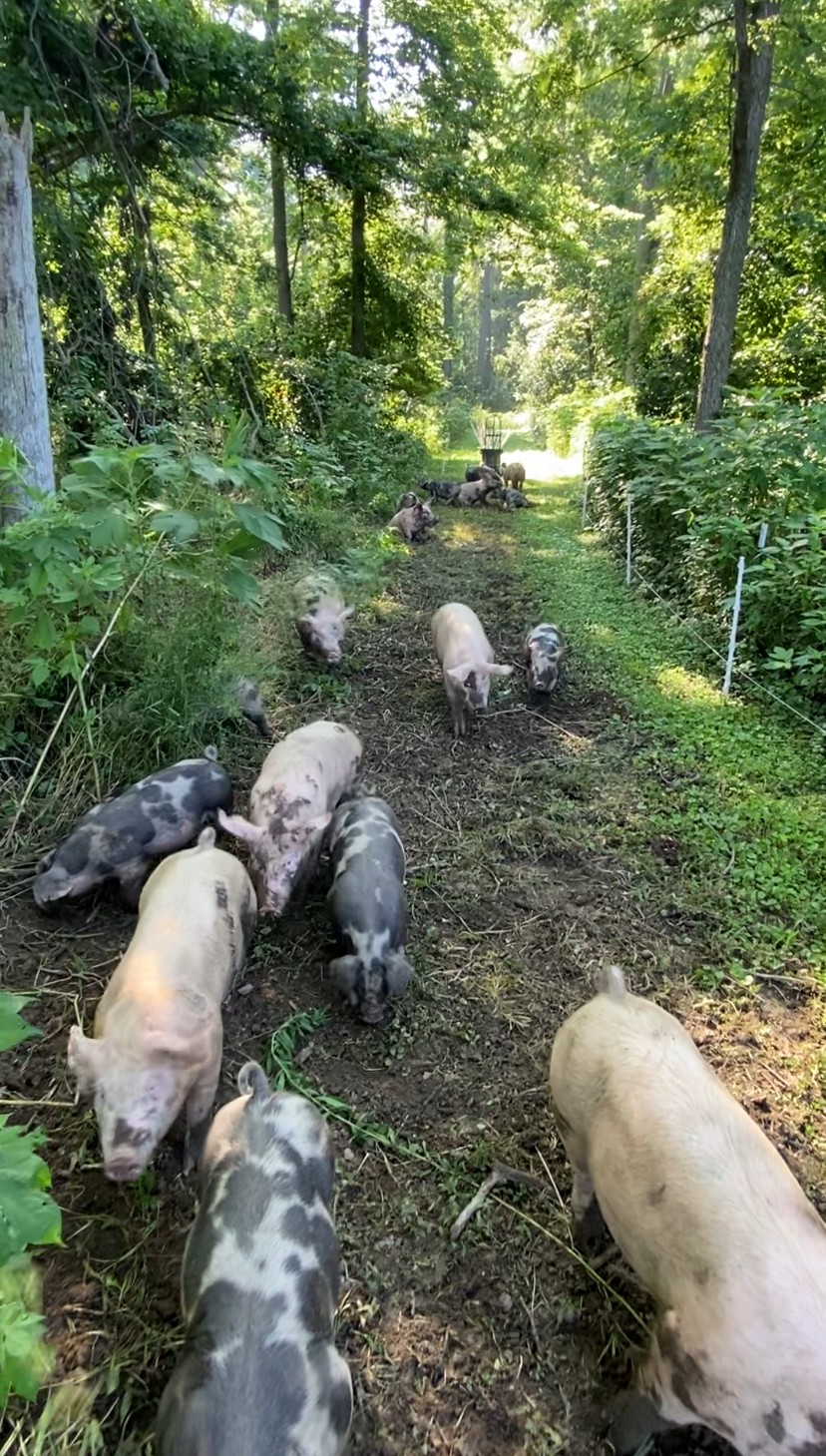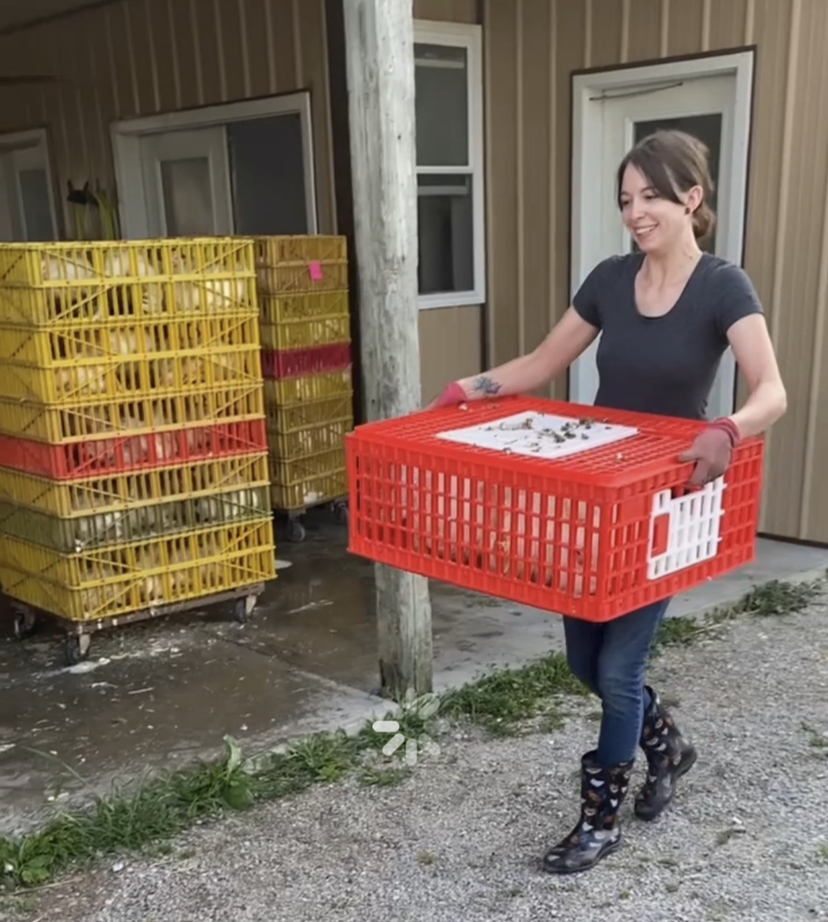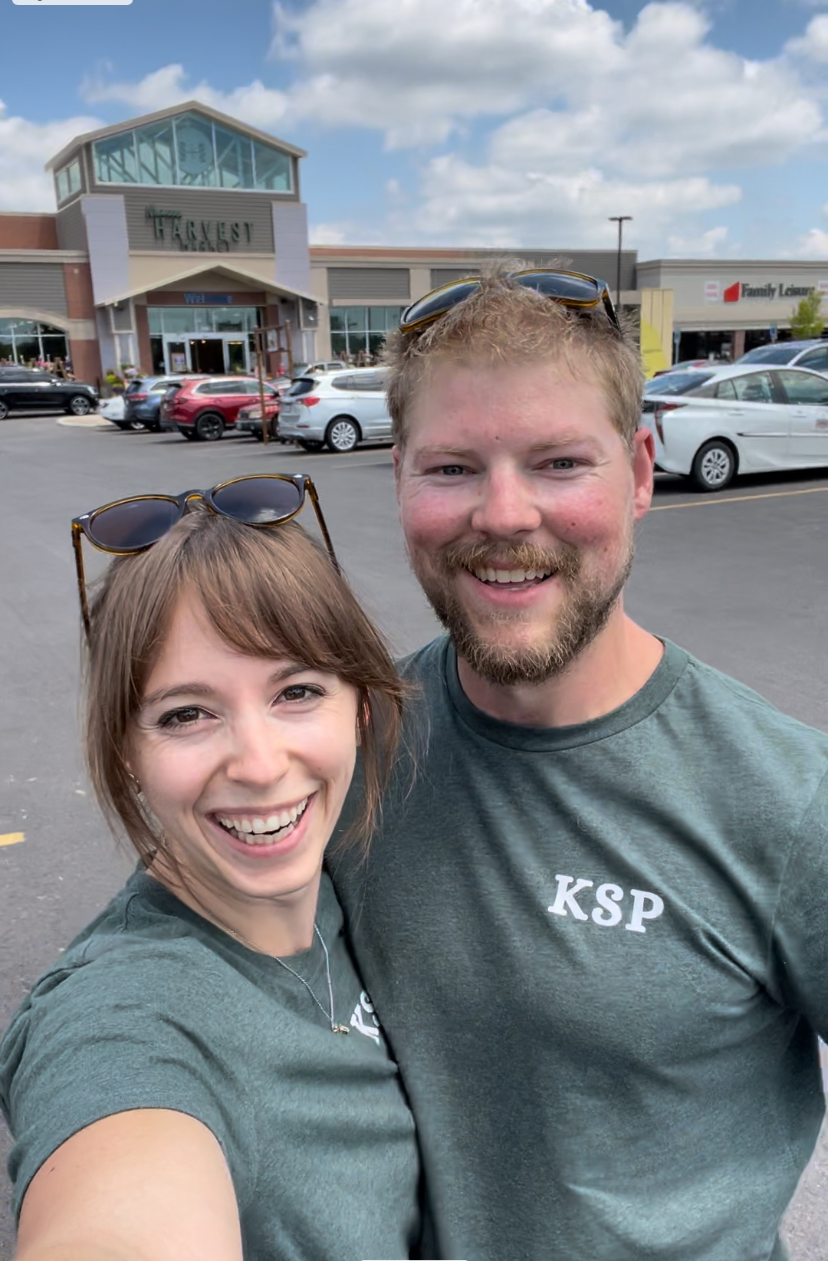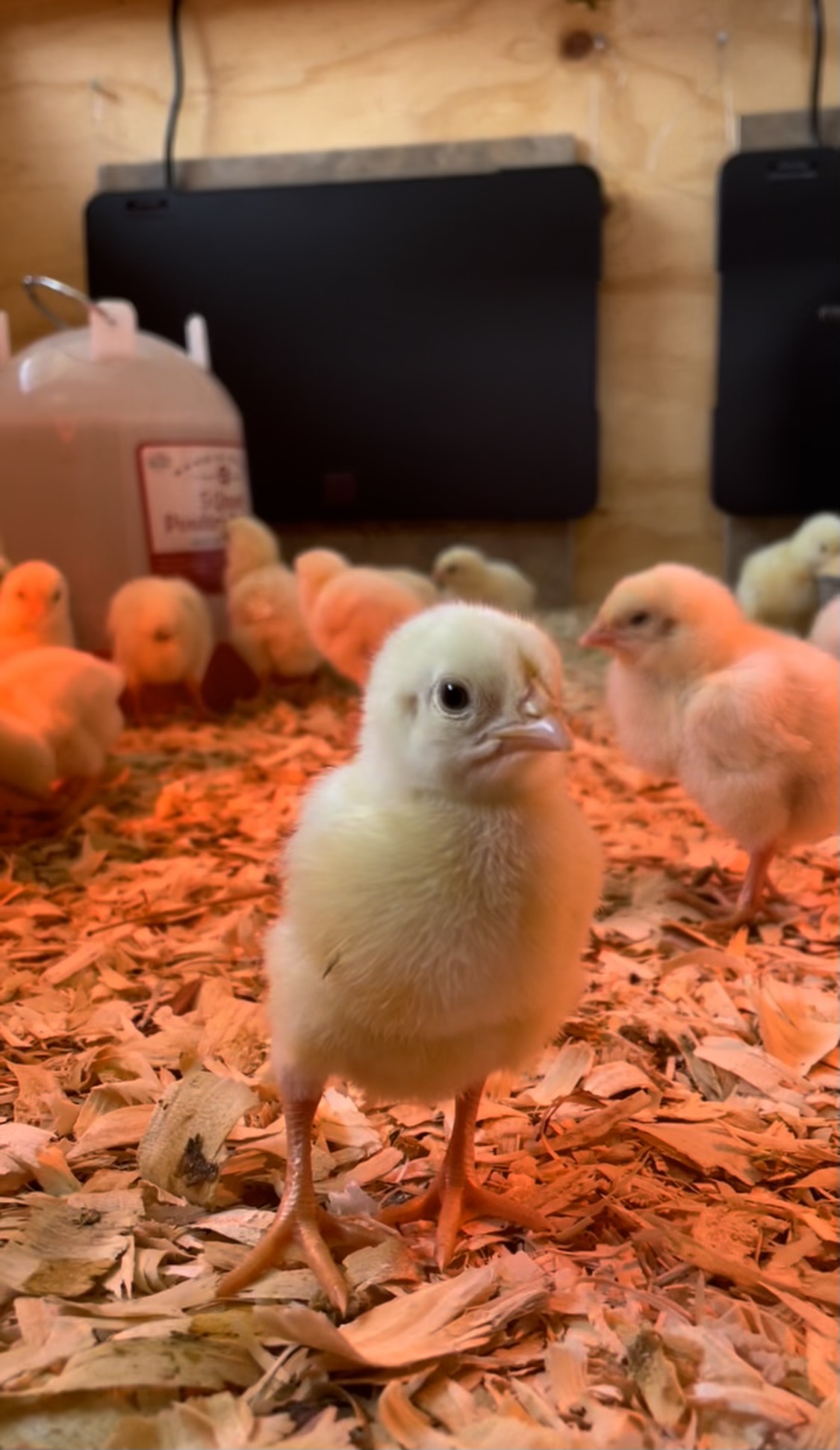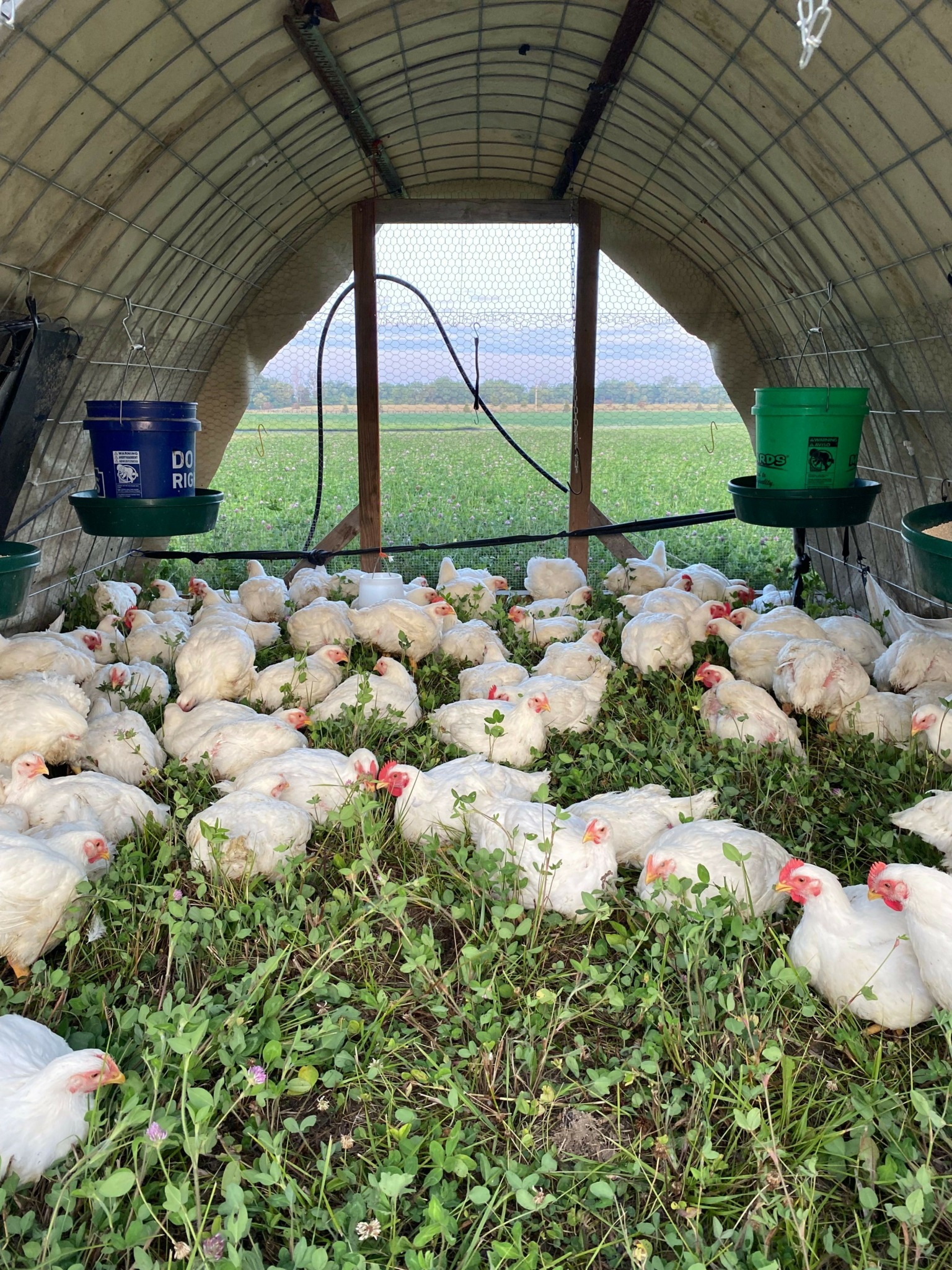We were lucky to catch up with Mike and Tiffany Squires recently and have shared our conversation below.
Mike and Tiffany , thanks for joining us, excited to have you contributing your stories and insights. We’d love to hear the backstory behind a risk you’ve taken – whether big or small, walk us through what it was like and how it ultimately turned out.
Tiffany and I started Kell Squires Pastures in April 2022, a year after getting married. As first-generation farmers we wanted to be part of the local food economy especially during the pandemic. We began to understand the fragility of the industrial food system and wanted to take more control over our health. After a string of health issues that culminated in surgery we realized an animal-based diet worked best for me, and the most economical way to make that happen would be to raise the animals ourselves. Starting the farm was a risk that has paid off in many ways.
3 years later our farm is thriving. In 2025 we’ll raise about 1000 meat birds and 20 hogs with around 100 egg layers. We currently work with Joe’s Butcher Shop and Niemann Harvest Market in Carmel, IN, and cherish the relationships that have been built.
Great, appreciate you sharing that with us. Before we ask you to share more of your insights, can you take a moment to introduce yourself and how you got to where you are today to our readers.
Coming from non-farming backgrounds Tiffany and I had no experience with livestock farming. Tiffany transitioned from retail to being an optician, while I’m in medical imaging. Our interest in regenerative agriculture grew through various books and media as we learned about its impact on food quality, soil health, and animal welfare. We began our journey in the Spring of 2022 with 100 Cornish meat birds, and it was a turning point for our entire family.
Farming is tough especially with a full-time job, but the joy of growing our own food and sharing it with loved ones is priceless. Every day spent farming is spent in nature with our family and that is what we most value.
Serving Central Indiana, Kell Squires Pastures offers pastured chicken, eggs, forest-raised pork, and natural dog treats. Our broilers thrive on chemical-free clover pastures, moved daily in mobile chicken tractors. Our laying hens enjoy rotating through 7 acres on the farm, while our soy-free hogs roam 5 acres of wooded land, living naturally and foraging freely.
Let’s talk about resilience next – do you have a story you can share with us?After plenty of research and hand wringing we decided to raise our first batch of chicks in late April 2022 because Indiana weather in March and early April can be too unpredictable and cold for chicks. That first year of raising broilers went off without a hitch, so the following year we got chicks in the middle of March. Unfortunately it was a disaster. We lost over 20% of the batch when we moved them out to the pasture in early April due to the extreme dips in temperature and snow. Tiffany and I were out each night trying to cover the tractors completely to keep in as much heat as possible. It was a soul wrenching and devastating time. We went from believing we could do this to thinking maybe this was too much.
Since then we’ve grown from our mistakes and made key changes. Farming is a constant learning curve but it is also very rewarding. We hope to inspire others to continue on even when their business venture falters.
If you could go back, would you choose the same profession, specialty, etc.?
When we first started farming we originally raised 100 meat birds in April 2022. It was exciting and it seemed like we had all the time in the world to devote to them. As we have grown over the last 3 years the thought has crossed our minds that we may have been better off starting with pigs instead of chickens. Pastured poultry is very labor intensive whether it’s moving chicks to pasture, dragging the chicken tractors every morning, or loading up birds for the butcher the night before. The whole enterprise can be a lot when you’re also working full time. Pigs on the other hand, once your infrastructure is built, are fairly stress free. Even though we choose to raise pigs in the forest the workload is still easier than raising pastured chicken. As long as you have infrastructure in place pigs are pretty easy to fit into a busy schedule. In the end, we enjoy raising both chickens and pigs, but the thought does sometimes cross our minds that we could have made it easier on ourselves to get started with pigs.
Contact Info:
- Website: Kellsquirespastures.com
- Instagram: https://instagram.com/kellsquirespastures?igshid=YmMyMTA2M2Y=
- Facebook: https://www.facebook.com/kellsquirespastures?mibextid=LQQJ4d
